Casement Park: Estimated cost for GAA stadium rises to £110m
- Published
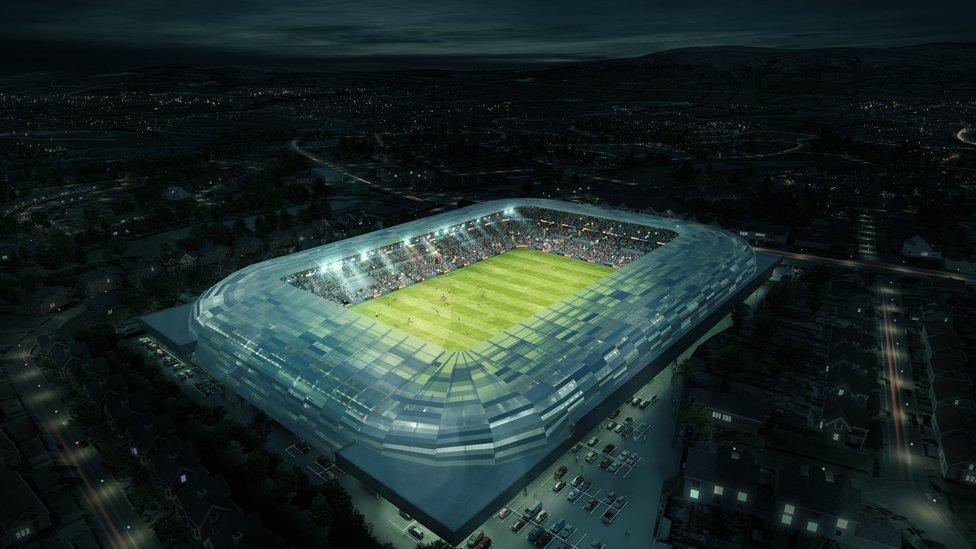
An aerial view of the proposed GAA stadium at Casement Park
The estimated cost of the proposed new Gaelic Athletic Association (GAA) stadium at Casement Park in west Belfast has risen to £110m.
The original estimate was £77.5m.
In spite of the rising cost, and the ongoing wait for planning permission, the GAA has said it remains committed to the project.
Significantly, the GAA believes a decision on planning approval for the 34,500-capacity stadium could be made, even in the absence of devolution.
Civil servants have been reluctant to take decisions in the absence of ministers at Stormont.
'Stalling'
In a statement on Friday, a GAA spokesperson said: "Ulster GAA has welcomed correspondence received from the Department for Infrastructure this week, which says that in the absence of a minister the department may make the final decision on the Casement Park planning application."
The Department for Infrastructure, which is considering the application, said it had requested more information about the project from the GAA.
"At the point where a decision is ready to be made, in the continued absence of ministers and taking account of the context at that stage, the department will consider whether to issue any future decision," it added.
The GAA is hoping that a planning decision will be announced soon.
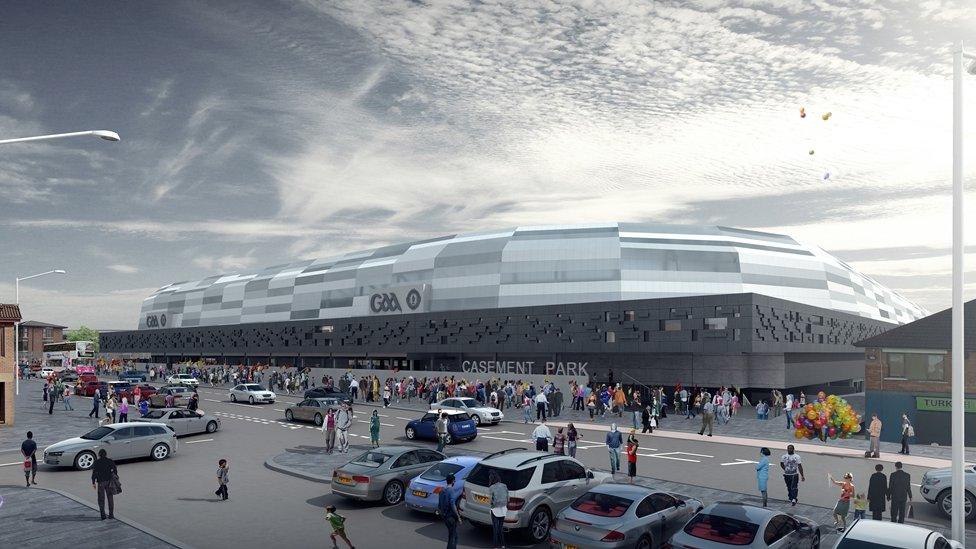
The GAA submitted a fresh planning application for the proposed stadium in February 2017
The chairman of the Casement Park project board, Tom Daley, said: "The prolonged nature of the planning process is stalling the project's progress and is also impacting its budgetary estimate, which is now likely to be in the region of £110m.
"With every day of delay pushing out the earliest possible start on site for the project, it is imperative that government departments discharge their responsibilities as expediently as possible to mitigate against increased costs."
Local opposition
The initial proposals for the redevelopment of the west Belfast stadium collapsed in 2014 under a legal challenge brought by a group of local residents.
Since then, the GAA has reduced the capacity of the planned stadium from 38,000 to 34,500.
The latest stadium design has also attracted opposition.
Some residents argue that the proposed stadium will reduce the quality of life for those living close by and compound traffic congestion.
A fresh planning application was submitted in February 2017 and is now awaiting a decision from the Department for Infrastructure.
If planning permission is granted, it could be subject to a legal challenge.
Even if the stadium gets the go-ahead, it is unlikely to be ready to stage matches before 2023.
- Published2 October 2018
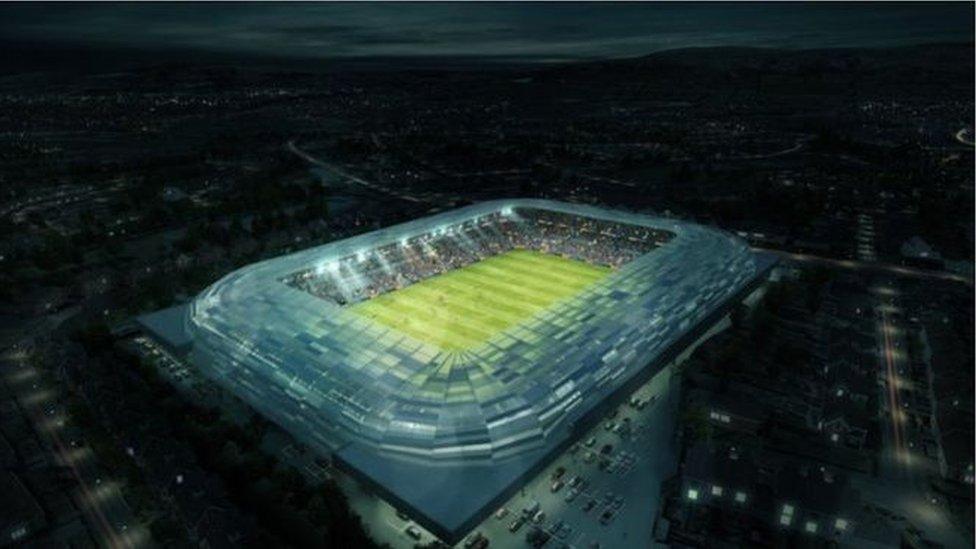
- Published5 September 2018
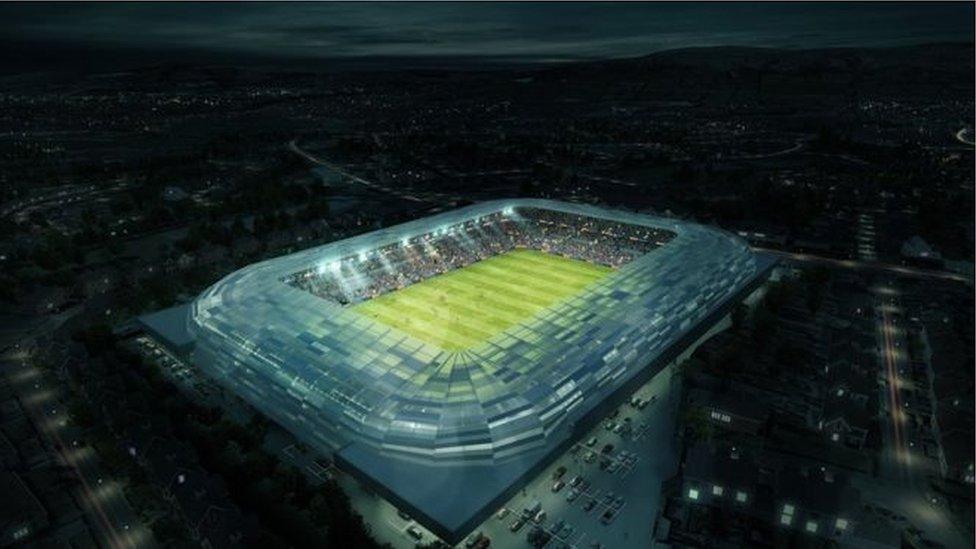
- Published18 July 2017
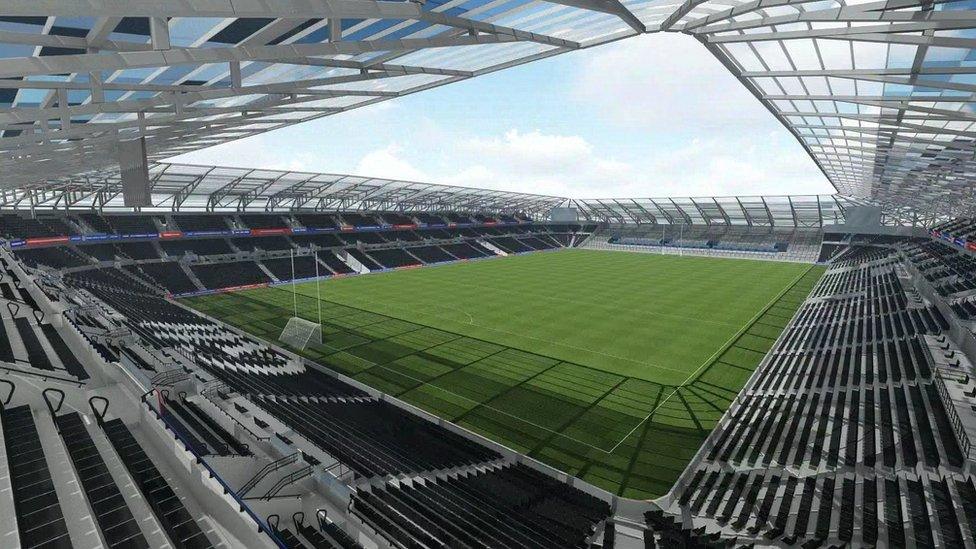
- Published28 February 2017

- Published24 October 2016
